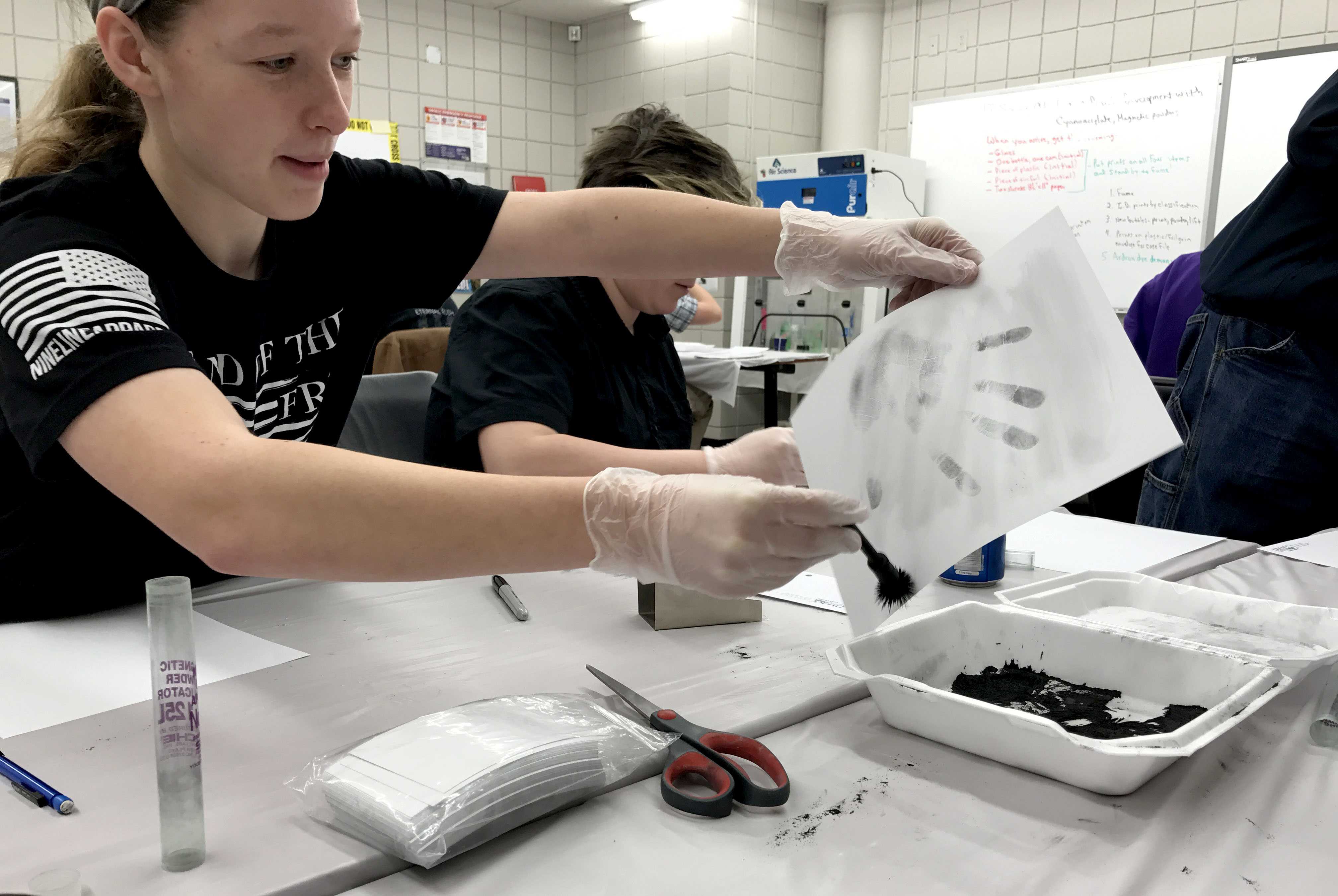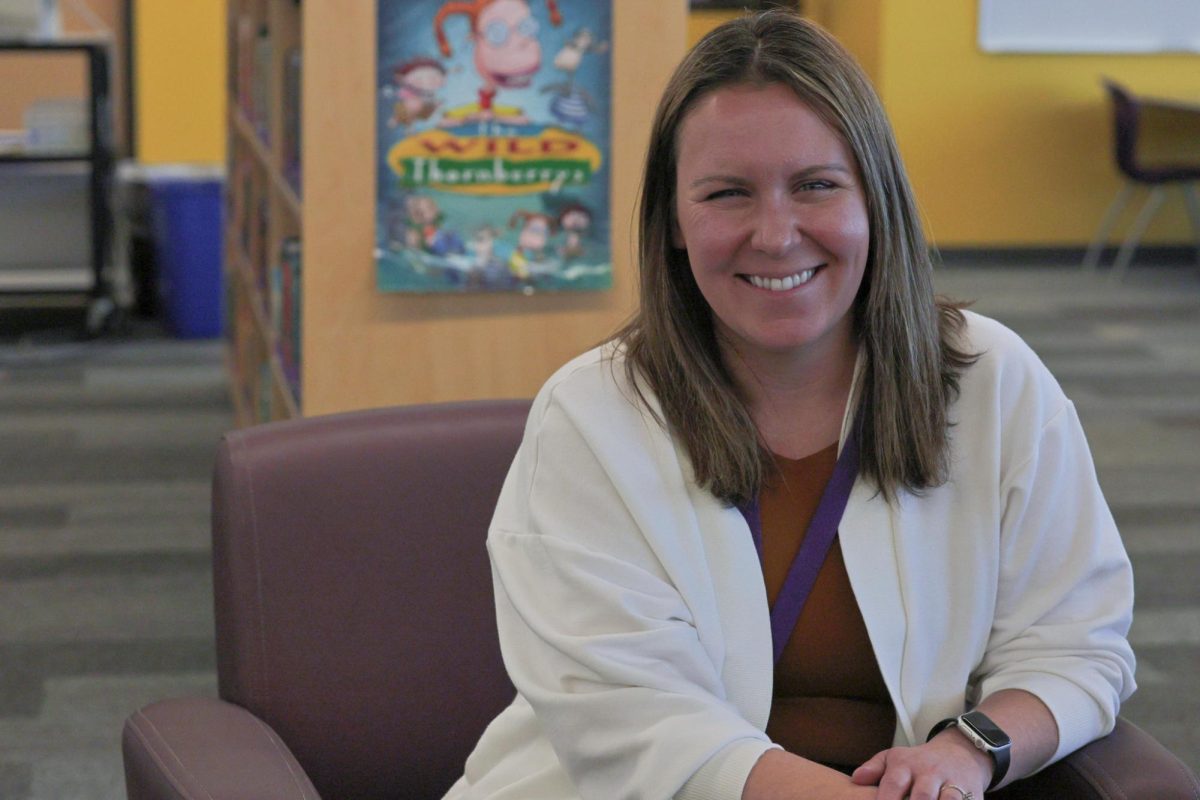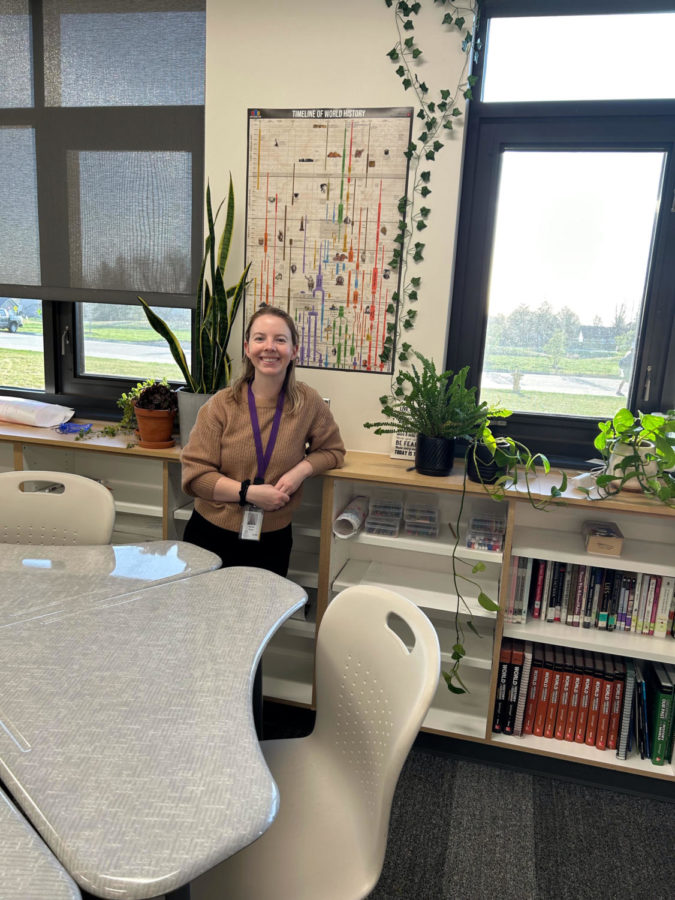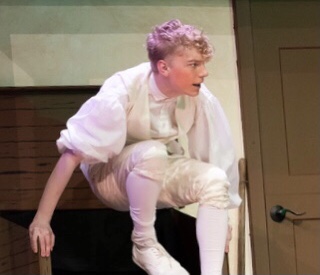Crime scene tape and blood stain stickers outline the window into the Ankeny Des Moines Area Community College’s (DMACC) Career Academy Criminal Justice class, and posters of different variations of bloodstains and fingerprints are hung across the classroom. “Let’s get rolling,” Criminal Justice professor Steve Martin announces to the class. Students gather their materials from a cart in the front of a classroom and listen intently to the instructions for their fingerprint analysis lab.
Students from various metro schools gather in Martin’s classroom to learn everything from analyzing bloodstain patterns to case files on serial killers. Callie Sandahl ’17 attends the program in the morning, and really enjoys the class overall. “It’s giving me a basis for a lot of different paths,” Sandahl said. Sandahl was considering majoring in Forensics in college, so she took the criminal justice class to solidify her plans. “The class is a lot of fun,” she said. “We have lectures Monday through Wednesday and we do labs on Thursdays and Fridays.” The labs students participate in involve analyzing fingerprints and bloodstains, investigating arson and burglary, and many more.
Martin formerly served with the Mt. Pleasant Police Department for 22 years before teaching at DMACC’s Ankeny campus. “I think I was born that way,” Martin said. “I’m serious, because I had a brother who’s two years younger than me, and when we were little we played cops and robbers. I was always the cop and he was the robber.” Martin made the decision to go into law enforcement during his junior year of high school, and continued in the field for a majority of his life. “I developed an interest a number of years ago to become a teacher, or a professor at an academy, or maybe in college,” Martin said. “I was gonna do one of two things, I was either going to be a police chief or do this. The more I looked at it the more I thought, ‘it’s too stressful being a police chief’.”
By the time Martin had graduated with his masters degree in criminal justice, DMACC had an opening for a job for someone with a law enforcement background. “I worked here my first semester, 11 years ago, teaching traditional college classes to college students over that summer,” Martin said. “And they said ‘Hey, we’re starting this new academy program for high school students, and we’d really like to have you do it.'”
Martin describes the criminal justice field as “multifaceted”. “There’s a lot of opportunities out there for people that want to go into being a sworn officer at the local, state, or federal level, or maybe even a civilian working within the law enforcement or criminal justice realm.” Martin said. The criminal justice programs provide academic emphasis in law enforcement, corrections, electronic crime, and homeland security, preparing students for careers ranging from being a local police officer to working for the Federal Bureau of Investigation.
DMACC’s Career Academy program for high school students gives students more of an inside look into their potential career field and builds connections with businesses and companies across the country. “I usually poll my students at the end of the year, and I ask them at the beginning what their plans are, and have they changed,” Martin said. “And about half of them say that their plans have changed, they want to go into something else, and the other half say no, this is what they want to do.”
The career academy classes provide a much different learning environment, but criminal justice is especially different from the average high school extra curricular class. “Most of the professors that teach in the career academy actually have real world experience and have worked in the field for a number of years,” Martin said. “They bring that experience into the classroom, and it really provides a lot of perspective.”
For students who are not able to attend classes at DMACC’s Career Academy, science teacher Chris Beguhn teaches Forensic Science, which is new to the high school during the 16-17 school year. “(Forensics) is more an introduction to Criminal Justice,” Beguhn said. “It was designed to be an overview.” The class highlights different job opportunities in the field as well, and gives students a basis and an idea of what the Criminal Justice field entails. “As a department we wanted to provide more science electives,” Beguhn said. Beguhn wanted there to be more science opportunities that were more than just A.P classes, and have another physical science option for students.
The Career Academy classes offered to high school students gives them the experience in the field of their interest, and prepares them for classes in college. The Criminal Justice program and its professors strongly promote learning where students get to have real-world experiences in the field.”We put stuff out there, and if you want to learn more, go out and learn more about it.” Martin said. “College generally is one of those things where we’ll maybe peak your interest,” Martin said. “But to really dig into stuff much more deeply, you need to go out and explore it on your own too.”














